How 4 Guys Built Twitter In 2 Weeks
I love a Book-of-the-Day like this. The story of the guys who went from nothing to starting Twitter.
Make sure you grab a copy of "Hatching Twitter" by clicking here.
Listen to the podcast by clicking here.
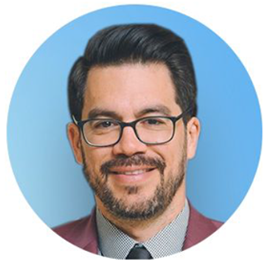
Tai Lopez
Sep 27, 2015
Transcription:
Tai: All right, welcome to today's Book of the Day Show. Talking about Twitter with the man who knows more about Twitter than anybody except maybe the founders of Twitter.
Tai: All right, welcome to today's Book of the Day Show. Talking about Twitter with the man who knows more about Twitter than anybody except maybe the founders of Twitter.
Nick: Actually, I think I know more than the founders.
Tai: That's good, that's good.
Nick: Because they don't talk to each other, and I did, so I would put it out there that I probably know a little more than them in some respects.
Tai: Awesome. Nick Bilton, his book's a New York Times bestseller, Hatching Twitter. This is the real story. Twitter, it's interesting because I do a lot on Twitter now in terms of posting. And I just had a tweet idea go viral, got like 8,000 favorites and retweets. And Twitter, it's almost become just part of something you have to do as a business person. It's like Facebook.
Nick: Yup.
Tai: It's become so ubiquitous that there's billion...What's the value on Twitter now?
Nick: Well, right now, it's around 17-18 billion, but that's because it's at a very low point because of all the CEO troubles they've been having.
Tai: Right.
Nick: But at its high, it was almost double that. I think it'll get back up into the 28 billion range once they solve a few issues they're having.
Tai: Yeah. So, I just read the book. I reread it last night in preparation for talking to you. My overarching feel is it's a good story. A lot of people say, "Tai, do you want a business partner?" And I'm always like, "Yeah. Business partners are usually..." You read this book and it's like...
Nick: You don't want a business partner.
Tai: I don't know if you want a business partner.
Nick: No. It's interesting because I think the reason so many people really enjoyed reading the book was because it's a business story, but it's written like a murder mystery.
Tai: Right. Yeah, it's an interesting read. Make sure you pick this up. It will keep you entertained. It's not a boring story.
Nick: I get tweets everyday from people that say that they are reading the book or they read the book or whatever. And most of them read it in a flight, which is painful considering how much work I've put into. But it's also amazing because it's that dramatic that they were able to continue to turn the page.
I actually did study a lot about how to write murder mysteries when I wrote the book because I felt like that's what it was, because you have these four founders, Noah Glass, Evan Williams, Jack Dorsey, and Biz Stone, that accidentally, completely by accident, made this company. And then they subsequently went through and kick each other out one by one by one by one by one until none of them were left.
Tai: Right. It's almost like Game of Thrones. It's like Game of Thrones. You watch HBO's Game of Thrones, and it's like every time you get attached to a character, they die.
Nick: Yeah.
Tai: This was like every time one of them is a CEO, he's no longer the CEO.
Nick: Did you ever see that somebody I posted on social media last year? They took the Game of Throne books, and they put a little colored Post-it note every time someone was killed in the book.
Tai: Okay.
Nick: And so there's this pile of books, hundreds of Post-it notes. I thought about doing that with this book for every time someone was fired.
Tai: Yeah.
Nick: And I actually started doing it, and there was dozens and dozens of Post-it notes.
Tai: Now, let's start at the beginning. So the two main characters, you can correct me if I'm wrong, are really Evan and Jack Dorsey.
Nick: Correct.
Tai: Now, okay, one of the questions I get a lot in terms of business, I have this Accelerator, like should I tell people my idea, because it will get stolen? And I tell them in general, if it's so easy of an idea, it's going to get stolen anyway.
Nick: Yeah.
Tai: But what happens is you got to be careful once the company is up and running. And so I feel like Jack Dorsey is really the one who had the idea.
Nick: Well, that's the story that's been told, right?
Tai: In the book, didn't he have...
Nick: He had the idea but, okay, if you go back, in the middle of the book, and I'm not to give it away to the people that haven't read it yet. But actually not in the middle, in the beginning of the book, there's a moment where Noah Glass, who has helped co-found the company that spawned Twitter. Noah Glass and Jack Dorsey are drunk, and they've been out drinking, and they've been dancing in a rave. And they are talking about these ideas about loneliness and how they want to solve that and allow friends to connect. And Jack has this idea that is, what if people could do that through text messaging?
Tai: Yes, the status idea, kind of.
Nick: The status idea, which is great. It's brilliant. But what Noah did was Noah took it and said, "Yeah, but that's not very human. It's almost like computers talking to each other or fax machines. What if you were to come up with these ways to humanize it?" And so he came up with the name Twitter and he came up with the...
Tai: He's somebody who cut out... How much is the net worth of all four of them?
Nick: Well, this is the crux of the story is that they all were there when it started. They were all in the room together.
Tai: But it's not 25% each.
Nick: It was not 25% each. So Evan was the money guy, which is a lesson that a lot of people in business should really learn about, about how much the money guy should actually have access to and how much they get.
Tai: Because he put in what? 250,000 or something like that?
Nick: He put in like 250 to push the company along.
Tai: What equity did he get for that?
Nick: He ended up owning about 60, 70% of the company.
Tai: Yeah, it was like 70.
Nick: And Noah Glass got 1%, which he sold out a lot of very early on. Biz got about 2%. Jack got about 20%. So today, fast forward, after dilution and all these other things that happen with startups, Jack is worth about $3-4 billion. And Evan's worth about $4-5 billion. Biz Stone made about 50 to 100 million. And Noah Glass got nothing.
Tai: I always feel like if you make a billion dollars and there's somebody, go back, wire him $5 million. Have you thought of that?
Nick: When the book came out, Jack Dorsey got a lot of flack from people because they were like "Hey, look, this guy contributed a lot to the story. And he's been completely written out of it." I was talking to one of Jack's PR people, and I was like "Just give the guy $10 million, and everyone would be like "Jack's a hero. Yay!" It's literally change between your couch for someone who has that much money.
Tai: But that was in the Steve Jobs story where Steve Jobs, not that it's the most accurate movie, but if you've seen Ashton Kutcher's Jobs, it's the same thing.
Nick: I didn't watch it. I'm not a big Ashton Kutcher fan.
Tai: He plays him very well. They look similar.
Nick: They do look similar. Yeah, I'll give him that.
Tai: You'd give him that. Not your favorite actor.
Nick: Yeah.
Tai: So one of the things I wrote, so I always write my notes in the back, one of the things that caught my eye, for somebody watching and listening now, one of the great lessons, the good about these guys... Anytime you dissect anybody, you find all these flaws. Was it Tolstoy or Dostoyevsky who said, "All happy families are happy in the same way, and all unhappy families are unhappy in a million different ways"? I don't like to just focus on dysfunction, even though it's a fascinating part of the book. The good thing, Jack Dorsey was an experimenter. You talk about in the book.
Nick: They all were.
Tai: But he was to the extreme.
Nick: Yeah, he was to the extreme.
Tai: He had the shirt that had a phone number. He put his phone number, he put it on a shirt and just walked down the street to see how many people will call him. And they would. And it was awkward, like you said. But see, this book here, an interesting book about self-made billionaires, their conclusion, those researches, is that it's habits of the mind, just like Arnold Schwarzenegger had habits in the gym to change his body. And I can't help but think most people are afraid of experiments.
Nick: Yeah.
Tai: So when you're not afraid of experiments, sure, your first one experiment is a dumb one, your shirt. But the next one, after a hundred of those, becomes Twitter.
Nick: Yeah. But essentially, that's Silicon Valley. It's one giant Petri dish. And a lot of experiments are really silly and probably shouldn't get the funding they get. And a lot of experiments are great ideas but happen at the wrong time. Instagram was not the first photo-sharing service.
Tai: Yeah. And it didn't even start out as a photo sharer.
Nick: It didn't even start out as a photo-sharing service. But it came along right at the moment that the iPhone camera was just good enough that you could take a picture and slap a filter on to make it look better. And it was square. And that was what helped it go viral. And Jack Dorsey actually helped it go viral because he was an investor in it.
But Twitter was not the first text messaging service like this. There was a thing called TXTMob. There were all these different things. It's about that experimentation. But as I learned reporting this book, it's about the moment that you put that experiment out to the world.
Tai: Right.
Nick: And if you do it too early, it will just fade away. No one will use it. If you do it too late, you're too late.
Tai: Yeah. Yeah, I just talked about that on the board there. I had nudist Buddhist principle, which was our nation... One of my mentors saw me and said, "Tai, you could tell all your friends you're a nudist. And they'll be like 'That's weird,' but they'll still accept you." You could tell your friends you're a Buddhist. And they'd be like, "That's a little weird, we'll accept you." But you can't tell them you're a nudist Buddhist. It's too weird. So you could be ahead of your time and you can be too late. And that's somewhat the luck factor. But what I also like in the book is the pre-story. So Evan started Blogger. This was his first thing.
Nick: Evan didn't just start Blogger. He was one of the pioneers of blogging. They're all fascinating. But Evan came from a small town in Nebraska, a farm town. He grew up on a farm. And he literally has been one of the most influential people in technology for the last 10 years when it comes to blogging and online messaging and social media.
Tai: Yeah. So he had a circle of competence…
Nick: So he had a lot of experiments, so like Evan had a really great one where when he was in high school he found out about the Internet. He loved computers. They all did. Jack loved computers. He used to work on his dad's. And Biz worked on his neighbor's computer and so on. But Evan had this great idea when the Internet was just coming about. No one really knew what it was. He decided with a buddy of his, they rented a VHS video recorder, and they sat, in a library, in a front of the square computer screen. And they talked to people about what the Internet was. And then they created this VHS, and they went around knocking on people's doors trying to sell them a VHS tape explaining what the Internet was. They all had this entrepreneurial spirit that led them to where they got. But Evan then ended up in San Francisco, created Blogger, which Google bought. And the money that he got from them...
Tai: They didn't buy it for much. Was it $5 or $10 million?
Nick: Yeah, I think it was about 40 million, 20 million, give or take. He ended up getting about 10 million out of the deal.
Tai: Was it an earnout? He had to stay working there?
Nick: He had to stay working there. He hated Google. He hated the culture. He felt it was like a very cutthroat world. And I tell the story of him when he first arrived in San Francisco. This is one of the things I find really amazing for people that don't know how they're going to end up at that level that they want to be, whether it's being a billionaire or running a successful company, whatever it is.
Evan, who's worth $5 billion, when he first moved out there, he was living atop a garage, doing $600 a month in a studio. And I saw the place. It was not pretty. And he worked hard, and he came up with ideas. And Jack Dorsey, Jack arrived in San Francisco with blue dreadlocks. And his job was literally writing C code for the ticketing machines when people used to go to Alcatraz, and they would buy the boat ticket. He wrote the code that would print the ticket, and that's what you pay for. And so they all started there, and now, look where they are.
Tai: Now, so as the story evolves, one of the core parts of the book is this whole complete dysfunctional breakdown where one guy gets nothing. That two main people are at each other's throat. How did this thing end up? What was the most crisis, and where are they right now? Do they talk? Are they friends anymore? Are they enemies and lawyers advising him not to speak to each other?
Nick: It's interesting because when I first started writing the book, none of the guys wanted to talk to me, none of the founders. They were all afraid because the story that they had told was not the real story. And I didn't know that when I first started writing the book. I knew it was a fun story, but I didn't realize just how dramatic it was. But eventually, they all ended up talking to me for quite considerable lengths of time. And it was sad because they were legitimately friends in the beginning. And by the end, they were definitely not. They all resented each other.
Biz, who is the Kramer of the group, he's a comedian. He's always trying to make sure that there's no turmoil between people. He's still friends with some of them. But Noah Glass was kicked out very early. And he was essentially completely written out of the story of Twitter. His name was not mentioned in the S1. It's not mentioned in the corporate history. Yet, if it wasn't for him, it wouldn't exist. If it wasn't for any of them, it wouldn't exist.
But today, you now have a company that is once again back in a tumultuous state where the CEO stepped down recently. And they have Jack Dorsey back as the interim CEO.
Tai: And Jack Dorsey, by the way, has gone on to start Square. So he's made a billion dollars. This is his second billion-dollar company.
Nick: Correct. Yup.
Tai: Now, what's the deal now? Is Twitter going to be run by Jack Dorsey? And why did that CEO get kicked out?
Nick: Well, Dick Costolo was the last CEO. And part of what makes this such a dramatic story is that it's a almost ten-year old company that's had almost as many leaders.
Tai: Ten CEOs in ten years.
Nick: So they had Noah Glass who ran it first, then Jack Dorsey. Then Jack got kicked out by Ev. Ev ran it. Jack had a coup to kick out Ev. Then Dick came in. Dick was best friends with Ev. It's Days of Our Lives, but a big business story.
Tai: I always say Genghis Khan went to war with horses and bow and arrows. Now, people go to war business and lawyers.
Nick: Yeah. Well, these guys went to war of social media. They went to war of social media. So now, it's back in its state. But what's really fascinating about the story is that one of the guys in the book, this guy Jason Goldman, who is like the fifth Beatle, he said to me in an interview, he said, "It's as if we succeeded in spite of ourselves."
Tai: Right.
Nick: And another great quote about the story was Mark Zuckerberg once said about Twitter, "It's like they had a clown car. They drove into a gold mine and fell in." That was the original title of the book was The Clown Car and the Gold Mine.
Tai: I like Catching Twitter.
Nick: Yeah, Catching Twitter's good too. But the reason I bring that up is because it is still succeeding by itself. It is still 300 million users, still talk about it every single day. I was reading the news this morning, and literally every news article I read had at one point said, "Oh, X person on Twitter said," or "Y person on Twitter said." And if you look at any story about Trump...
Tai: Well, it's celebrity-driven, and celebrities are driving the world.
Nick: It's not just celebrities. I agree with you on that completely. But it's influencer-driven.
Tai: Yeah, but I call those the new celebrities.
Nick: Yeah.
Tai: It's not just Tom Cruise.
Nick: Exactly.
Tai: You know who's fallen off Twitter is Paris Hilton. Her Twitter, she gets, on average, 150 favorites. I get on average 400. It's crazy how...
Nick: Maybe she had a bunch of bots. I've written about all the bots.
Tai: No, it's her real one. I think Kim Kardashian, you see it's like a whole tabloid on Twitter. You could see this whole like Kanye West is popular than Kim Kardashian. They dominated.
Nick: Well, you know what's fascinating is the Twitter wars between people.
Tai: Oh yeah, Meek Mill and...what's the...?
Nick: Was it Kanye? No. It was...
Man: Drake.
Tai: Drake and Meek Mill. Yeah.
Nick: Drake and Meek Mill, yeah.
Tai: Who would have thought in a world where it's like this is where people go to battle with like 140 characters.
Nick: I know. It's 140 characters. I find this really interesting. There's a line in the book about where I say that they didn't realize that within 140-character box that people could use it for anything from the revolution of what's happening in Iran to help promote that to...
Tai: Egypt and all that, yeah.
Nick: ...to selling food from the food truck on Los Feliz Boulevard.
Tai: Do you think, though, Twitter is decreasing a little bit in...Now, there's Snapchat, definitely has taken a lot of market share. You see them, they bought Periscope. Twitter did.
Nick: Yup.
Tai: Was that a defensive move you think that they bought it just like Facebook bought Instagram and WhatsApp because those were killers, potential Facebook. Do you think Twitter is getting in that acquisition game now?
Nick: Well, Twitter's done a lot of acquisitions, dozens and dozens and dozens of them. But we're moving to a world where people want to stream video of everything they're doing.
Tai: Yeah, live. If you ever use Periscope, it's pretty cool. I'm on there once in a while.
Nick: I use Snapchat. I haven't been using it lately, just because I'm working on my next book and that it's the only thing I can really focus on. But I use Snapchat Stories a lot. I really love it. It's an amazing audience. And when the latest protest happened in Ferguson a few weeks ago, I was fascinated because I was watching the police on one side of the street, which I found on Twitter, sharing the video from their perspective on Periscope. And on the other side of the street were the protesters sharing Periscope video from their perspective. And if you watched the two together, you literally were getting the live view of what was taking place. You see that happen in news events, but you also see it happen at concerts, and you see it happen at conferences and just everything. And I think that Twitter recognizes that's the next stage of all this.
Tai: And it's powerful. And we're going to talk about that. For those of you in Accelerator, my business stuff, we're going to do some specific talks on what this book has to teach about money, not just his book, but your experience behind the scenes at Twitter. And we'll do that in a separate video. Today, as we talk about this in the show, question that I think is important, for you, because you're inside of their minds somewhat, you interviewed them and know the story, what do you think is the biggest life lesson Evan, Jack, and you take away from this story in Hatching Twitter? If you got to apply one thing practically to your life, what would it be?
Nick: That's a good question. I've done a lot of interviews for this book, but no one's ever asked me that question. Well, I think that Jack learned, and I can't speak for them now, but I can speak from them when I interviewed them for the book. And so this answer is more applicable to that. Jack learned the lesson that to make things his. When he got kicked out of Twitter, he felt that he had been unjustly kicked out of Twitter. And certain people agree with him, and certain people disagree with him. And as a reader, it's up to you to decide. And that's the way I wrote the story. But when he started Square, he ensured that was never going to happen again.
Tai: Right.
Nick: He owns the majority of the company. He picks the board. He is the chairman. He's the CEO. And he learned a lot of valuable lessons. And I think that's really fascinating.
I think Ev learned the importance of family actually. Noah learned the same thing. But Ev wanted to be a big person that ran a big company. He came from Nebraska, the small town farm. And he built some really big impressive things. And he wanted to be known for being a product visionary. And I think that he did those things. He contributed to all these things. Just like Jack, he started multiple various successful businesses. But at the end of the day, when he was betrayed by the board, the board turned on him behind his back and betrayed by some of the people that worked for him that had also turned on him, I think he realized that he had been successful, he contributed to society, and that his family was really important to him. And that was really interesting.
And for me, one of the stories that I actually learned the most was when all these guys got together and started this business, they didn't start it as a business. They started it as a cure for loneliness. So I think that when you're in your 20s or even older or younger, you go to this phase where you don't know what you want to do with your life, and you feel alone, and you feel lonely. And in the past, you would have tried being goth for a little while, or you've done this or that. Now, you turn to social media.
Tai: Right.
Nick: You try to find friends and connections in social media. You're posting really funny or obnoxious or whatever it is on Twitter or Instagram or Facebook.
Tai: It's a virtual world.
Nick: And you look for those likes, right? And I went through this. I had gone through a breakup. Right when I was writing this book, I was trying to seek out connections through technology. And I realized that's not how you get these connections. It's through human interaction. And these guys, every single one of them learned that through this process.
When they started Twitter, they all were going through a personal crisis. Jack was single and alone and didn't have any friends. Noah was going through a divorce. Biz and his wife were completely broke. Ev, he was petrified that he'd be known as a one hit wonder and would never do anything great again. And they all had these things and also as the employees. And they thought that this company was going to be able to connect them with each other and that they could say, "I'm going to bed." And their friends on Twitter, which is the first night they ever used it, they said, "Have a great night. Sleep well." It was like a big dormitory. And I think as the product evolved and exploded in the way it did, they all turned around at one point or another and realized, "Okay, technology doesn't connect us in a way that it's going to cure loneliness." But it does connect us in other ways. It connects us in business. It connects us with other people.
Tai: Well, it facilitates. Like Facebook, I don't feel like people have better... I live with the Amish for two and a half years, no electricity, no, obviously, cellphones. And like you said, there is no replacement for physical proximity. But to the extent that Twitter and Facebook can get you that proximity...
Nick: Exactly. Well, and I'm not going to read it, but at the very end of the book is that perfectly poignant experience showing how technology doesn't connect us, and yet, it does connect us.
Tai: Yeah.
Nick: And so I will let the viewers read that part to see what I'm talking about.
Tai: Awesome. So Hatching Twitter, New York Times bestseller, here with Nick Bolton...Bilton, not Bolton, although Bolton would be a cool if he had...
Nick: Could be, if I had the right hair.
Tai: I'll tell you a story probably about the Mr. Bolton. That's funny. I recommend books here. I only recommend books that I've actually read. I've read this one one and a half times because I came back around to read it again for this one. And I think these bio, whether they're autobiographies or biographies like this, are one of the best ways to stay motivated, to learn without making the mistakes yourself. And so go out and get it now.
Nick, where's the best way for people to reach you. Is it Twitter?
Nick: It is. I don't tweet that much lately because I am working on my next book. But it's Twitter and Facebook or Instagram. I'm @nickbilton on pretty much any product or service that is out there.
Tai: And you've got a book, look forward to it. I actually love this title. Tell them what the next book's coming up.
Nick: Well, we don't have the title yet, but the next book is going to be about the Silk Road and the Dread Pirate Roberts who is the...
Tai: Not the Dread Pirate Roberts from Princess Bride.
Nick: But a version of him. It's this guy, Ross Ulbricht who was a really, really smart, sweet kid from Austin, Texas who had this idea to build a website where you could buy and sell drugs. And it became a multi-hundred-million-dollar enterprise before the FBI, DEA, HSI, you name it, captured him.
Tai: So it was like a black market Ebay, basically.
Nick: It was a black market eBay but it is...
Tai: I'm sure that's going to be a crazy story.
Nick: It's a crazy story that there are DEA agents that are supposed to be informants but end up actually becoming undercover drug dealers. And they ended up in jail. There are murders that didn't happen but they thought happened, and it's a wild, wild, wild story so. It's going to be a good one.
Tai: All right. Mr. Bilton...
Nick: Thank you.
Tai: ...make sure you, everybody listening, grab the book. And if you're in the Accelerator we're going to do my other program. We're going to be talking on the lessons on money, entrepreneurship and marketing. So tailopez.com, signing off. Thanks so much.
Nick: Thank you.
Tai: Yeah.
COMMENTS
Best of Tailopez
-
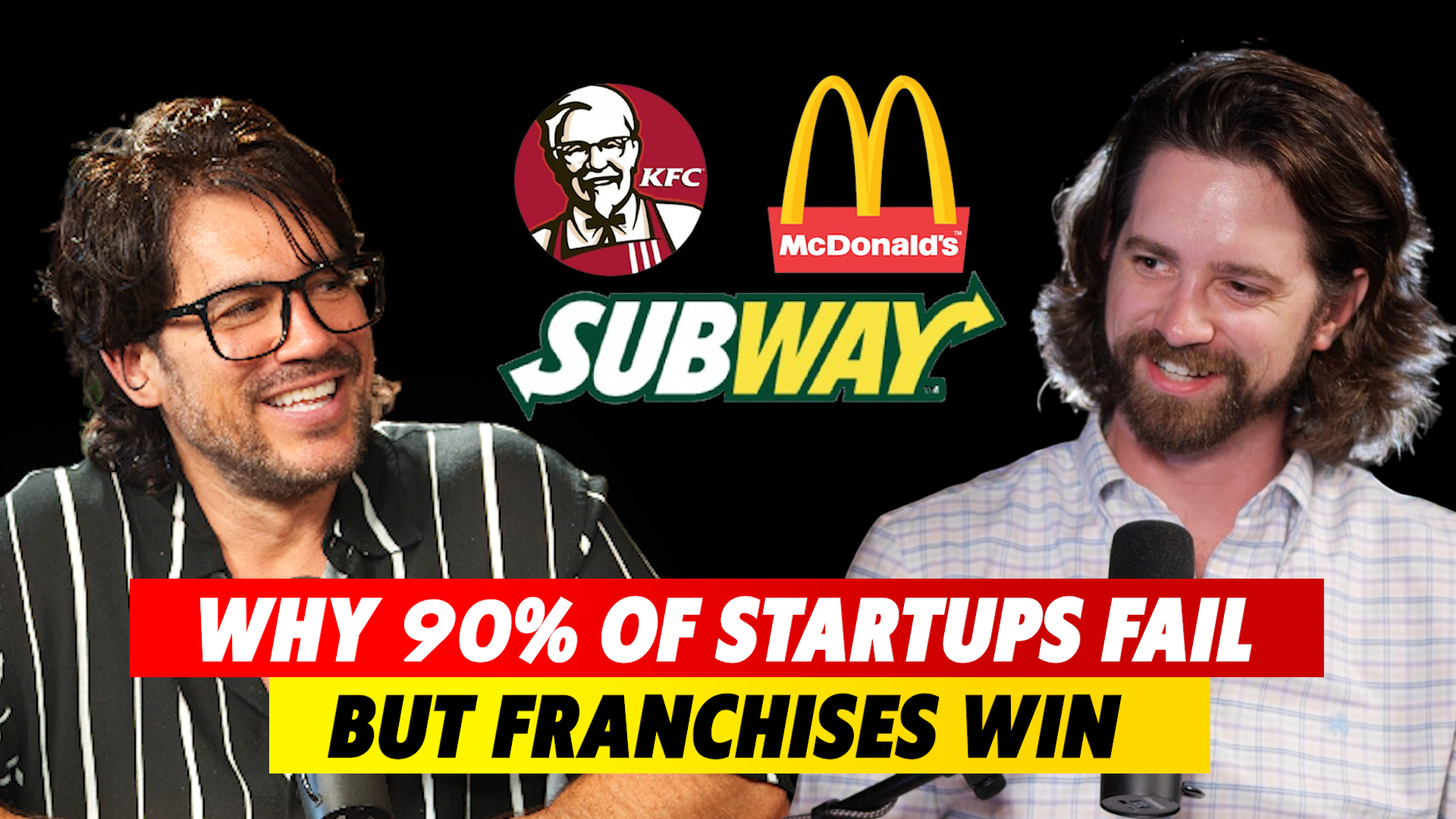 Why 90% of Startups Fail (But Franchises Win)
Why 90% of Startups Fail (But Franchises Win) -
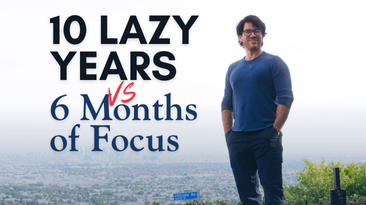 Ten Lazy Years Can Be Erased With Six Focused Months
Ten Lazy Years Can Be Erased With Six Focused Months -
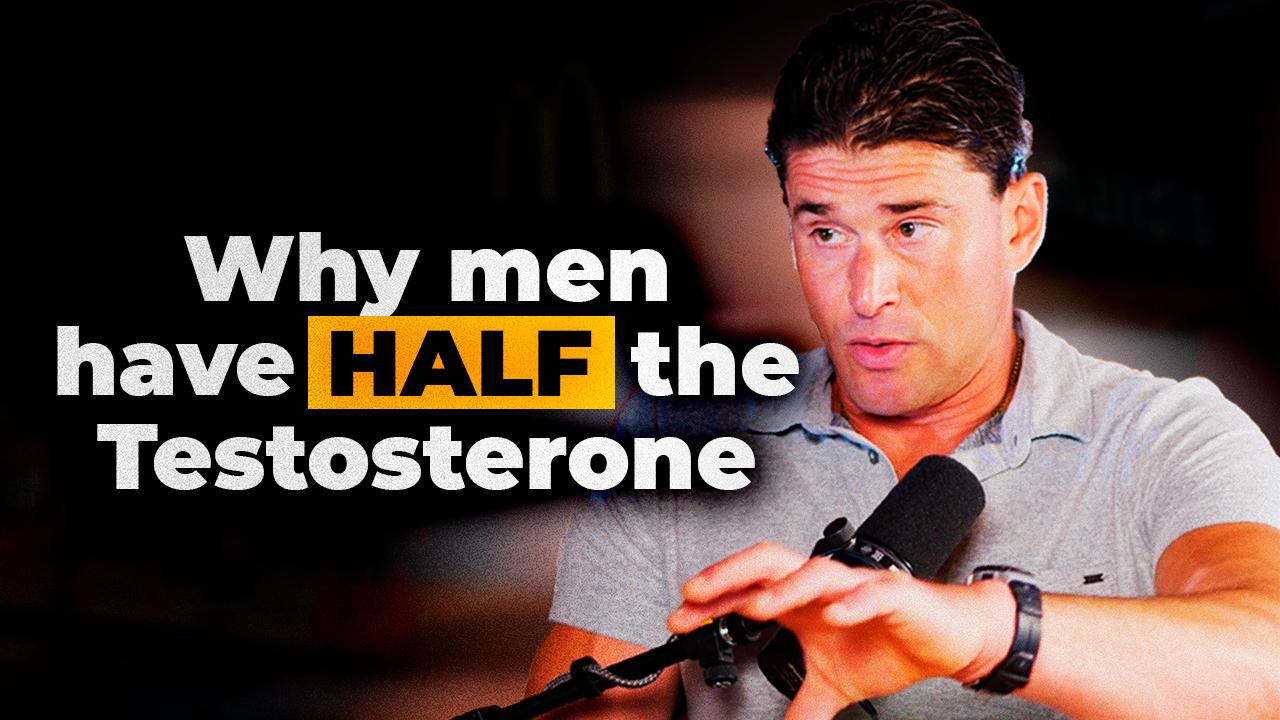 Why Men's Testosterone Is Half Their Grandfather's with Ben Greenfield
Why Men's Testosterone Is Half Their Grandfather's with Ben Greenfield -
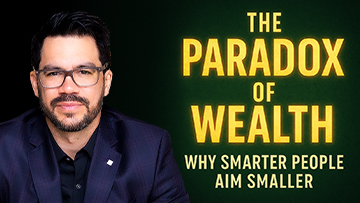 The Paradox of Wealth: Why Smarter People Aim Smaller
The Paradox of Wealth: Why Smarter People Aim Smaller -
 Mamma Mia in West Adams: Tai Lopez Finds LA's Pasta Holy Grail at Cento Pasta Bar
Mamma Mia in West Adams: Tai Lopez Finds LA's Pasta Holy Grail at Cento Pasta Bar

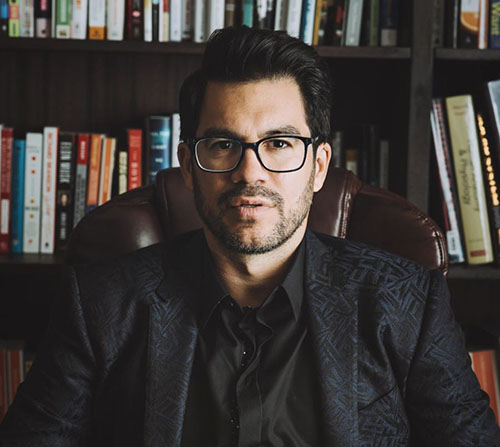
0 Comments